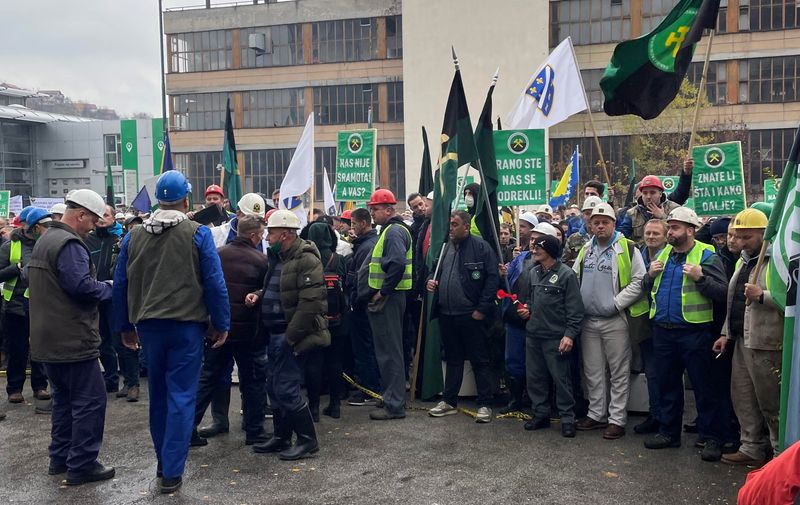SARAJEVO (Reuters) - About 7,000 miners will return to work at Bosnia's seven coal mines after securing a deal with the government and state-owned Elektroprivreda BiH (EPBiH) power utility on wages and pensions, officials said on Wednesday, bringing to an end a 9-day protest.
The miners halted work last week in support of colleagues who were protesting in the capital Sarajevo against what they said were violations of work and pay regulations.
EPBiH General Manager Admir Andelija said at the time that power production at the largest coal-fired Tuzla power plant was under threat as there were only 10-days worth of coal reserves, and the company could be forced to raise electricity prices.
Under the new agreement, miners will be paid outstanding pensions accumulated over past decades, which Andelija said amounted to 500 million Bosnian marka ($288.2 million), and a higher basic salary.
"The quality of the agreement is that it is not going to endanger the operation of EPBiH," Andelija said.
He said that EPBiH and the government of Bosnia's autonomous Bosniak-Croat Federation, where the mines are located, had agreed to raise the price of coal by 20% from 2022, as requested by trade union representatives. However, there would be no price hikes for households next year.

Federation Industry and Energy Minister Nermin Dzindic said the deal was necessary to unlock the restructuring of indebted coal mines as part of a government plan to switch gradually to renewable energy sources from coal and cut the number of miners to 5,200 over the next several years.
(1$ = 1.72 Bosnian marka)
